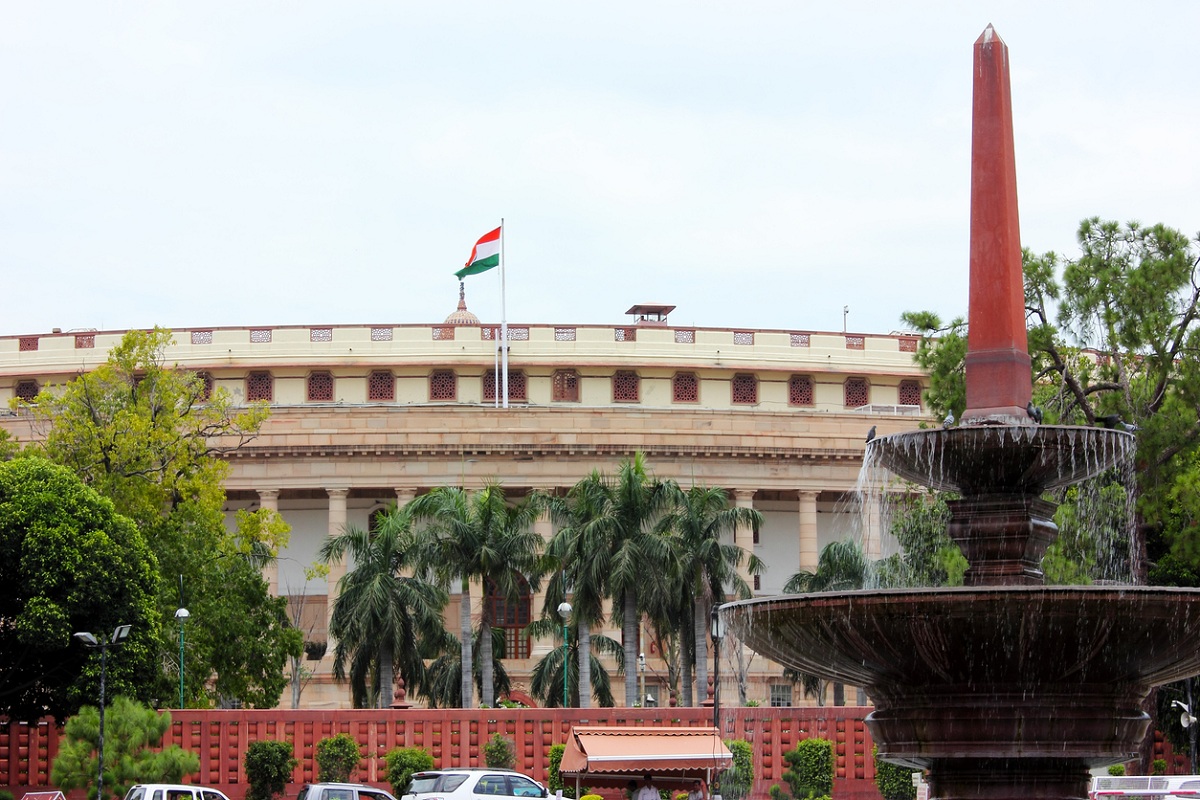Opposition space
As India undergoes another monumental electoral exercise, the spotlight intensifies on the condition of its democratic institutions, particularly the role and effectiveness of the opposition.
Confrontation took place on the Insurance Amendment Bill, 2021 and the Government of National Capital Territory of Delhi (Amendment) Bill, 2021. Like the rest of the Session, there were repeated adjournments and walkouts.

(Image: iStock)
Opposition attacks on the Government turned stronger as Parliament concluded its Budget Session last week, completing the entire financial business well before 31st March.
The opposition was exercised not just on financial policies; there were Bills that it wanted not passed in haste, but got no concessions from the Government . Confrontation took place on the Insurance Amendment Bill, 2021 and the Government of National Capital Territory of Delhi (Amendment) Bill, 2021. Like the rest of the Session, there were repeated adjournments and walkouts.
While the Insurance Bill sought to raise the limit of foreign direct investment (FDI) in the insurance sector from 49 per cent to 74 per cent, the Delhi NCT Bill sought to redefine certain basic features of the original NCT governance law.
Advertisement
The Insurance Bill was already passed by the Rajya Sabha when the Lok Sabha considered it last week. Still, doubts were raised how the substantial increase in FDI would impact the Indian insurance domain where public sector entities had provided reliable services to their customers and large dividends to the Government.
In both Houses, the Congress recalled that former Prime Minister Atal Bihari Vajpayee had opened FDI into the sector with a 26 per cent limit, but blocked its increase to 49 per cent when the UPA Government under Manmohan Singh proposed it. The Rajya Sabha had seen a more aggressive Opposition on the Bill, forcing several adjournments before the discussion, but the Lok Sabha allowed its passage without any difficulty.
Finance Minister Nirmala Sitharaman said the FDI limit revision to 49 per cent had brought Rs 26,000 crores in foreign capital for the liquidity- starved sector.
The Finance Bill discussions on Tuesday and Wednesday, in the Lok Sabha and Rajya Sabha, respectively, were more comprehensive in reviewing the performance of the economy. Quite expectedly, the steep increases in the sale prices of petrol, diesel and cooking gas came under attack.
In the Rajya Sabha, Sushil Kumar Modi (BJP) responded on behalf of the Government and said those criticizing the taxation rates for petrol and diesel must know that any reduction in the rates would seriously impact the States’ income, and their developmental projects eventually. If out of Rs 100 a litre petrol, Rs 60 was the tax component; the Centre received only Rs 35, and Rs 25 went to the States’ coffers. Even out of the Central share, 42 per cent devolved on the States as per the 14th Finance Commission formula.
A former deputy chief minister of Bihar, Modi said he had long been associated with the evolution of the Goods and Services Tax (GST), and knew that the States would never accept bringing petrol and diesel under the GST purview, as this would mean a reduction in the tax rates, and an annual loss of over Rs 2 lakh crores to them in tax revenues.
Trinamul Congress members led by their leader Derek O’Brien complained of injustice towards West Bengal in the Rajya Sabha, but the finance minister replied the state government was responsible for depriving the poor farmers of the state their due under the Kisan Samman Nidhi scheme by not supplying their names to the Centre.
The toughest battle during the Budget Session was on the Delhi NCT Bill, but the Government eventually managed to get it passed. The Bill was first passed by the Lok Sabha after heated exchanges. The Government defence was the Opposition read too much in the Bill which was just removing some ambiguities in the existing law.
The Rajya Sabha witnessed much more drama, but walkouts before the voting by several regional parties made things easier for the Government. The Bill came up before the Upper House first on 23rd March but had to be deferred till the next day, after the Opposition described it as “unconstitutional” and forced four adjournments.
On the next day, too, there were two adjournments, and a discussion on the Bill remained stalled for 40 minutes. Leader of the Opposition Mallikarjun Kharge this time described the Bill as dangerous, designed to deprive an elected Government of its democratic powers.
He suggested a Select Committee reference for the Bill, saying the NCT of Delhi Act was protected by Article 239AA of the Constitution, and a Constitutional amendment must also come. Sanjay Singh, member representing Delhi’s ruling Aam Aadmi Party (AAP), had given a notice against the Bill but it was rejected.
Advertisement